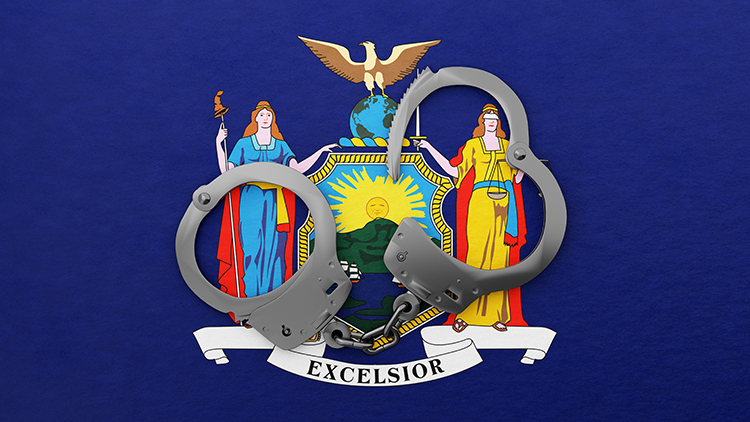Arrests without formal charges or convictions no longer have to be disclosed by would-be lawyers in New York

Image from Shutterstock.
The New York Supreme Court’s appellate division is whittling down the types of justice system involvement that would-be lawyers have to disclose when applying for bar admission.
The changes are intended “to better promote equity and fairness in the character and fitness interview process,” according to a press release.
As a result of the changes to Question 26 on the application, lawyers will no longer have to disclose:
• Matters adjudicated in a juvenile delinquency proceeding in family court or other equivalent noncriminal proceedings.
• Citations, tickets, arrests and other encounters with police that did not result in formal criminal charges or an indictment, trial, conviction or guilty plea.
Previously bar applicants had to reveal all justice system involvement, except for traffic tickets and some traffic violations.
The appellate division said it was making the change because communities of color are subject to disproportionate policing and prosecution. Having to reveal all involvement with the justice system could discourage minorities from even applying to law school, the press release said.
The announcement noted that answers to Question 26 remain confidential, and the mere fact of interactions with the justice system are not, by themselves, a basis for denying admission to the bar.
New York State Bar Association President Sherry Levin Wallach called the change “a significant step forward” in a press release. She expressed concern, however, that Question 26 still seeks information on juvenile proceedings in criminal court.
New York human rights law “unequivocally precludes licensing agencies from posing questions about arrests that are not pending and sealed criminal convictions,” she said in the statement. She said the NYSBA would continue to address remaining issues with Question 26.
The appellate division defended its decision in the press release. It determined that “a measured inquiry into not just convictions but also formal charges is appropriate,” the release said. “For example, victims of sex crimes are often reluctant to proceed, resulting in dismissed charges, and youthful offender adjudications may involve conduct, such as felony identity theft, that is particularly relevant to an applicant’s fitness to serve as an attorney.”
Publications covering the change include Reuters, Law360 and Above the Law.
Related articles:
ABAJournal.com: “Should would-be lawyers have to disclose full criminal records? New York asked to consider change”
ABAJournal.com: “Would-be lawyers shouldn’t have to disclose arrests without conviction, NYSBA says”



